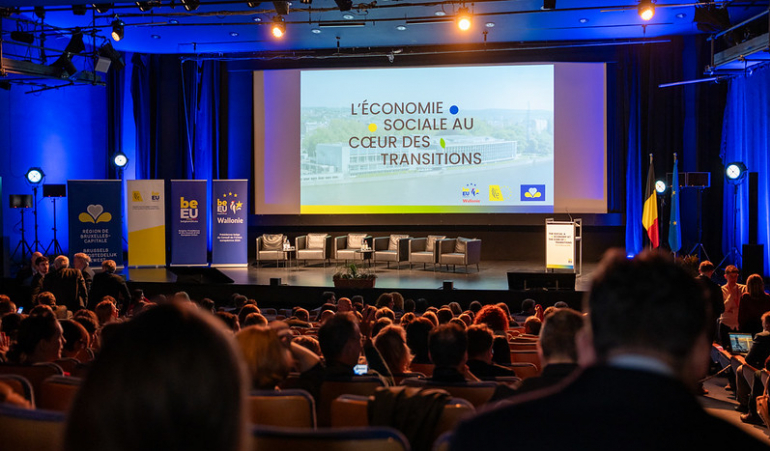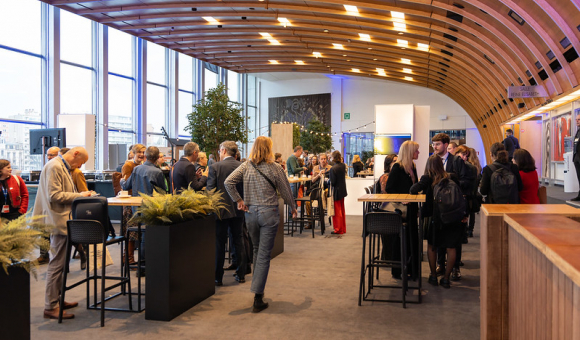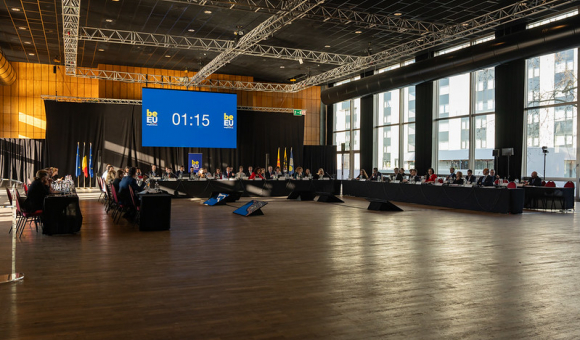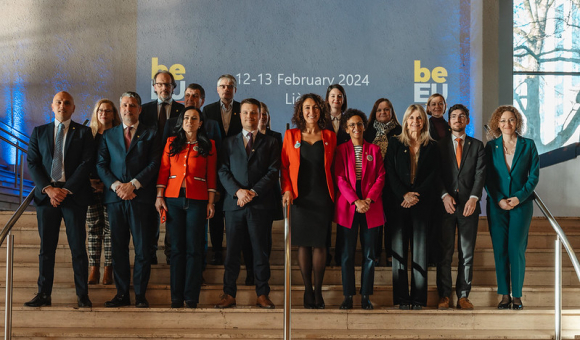
Conference of European Ministers responsible for the Social Economy, 11-12 February 2024, Liège,
At the Ministerial Conference, EU Ministers in charge of the Social Economy were invited to discuss and propose policy priorities in this field for the next EU legislature. To this end, they adopted the Liège Roadmap for Social Economy in the European Union. This Liège Roadmap aims to address important and pressing issues facing the social economy and to ensure that the present positive momentum continues to thrive after the next European elections. It proposes 25 commitments and key priorities on the social economy in the run-up to the future European social agenda.
These commitments and priorities are built on three axes:
-
recognising the social economy in national and European legislation and practices ;
-
strengthening and stimulating funding tools for social economy organisations ;
- and giving the social economy a leading role in achieving the European Union’s economic, social and environmental objectives.
In addition, the Member States which are members of the Monitoring Committee of the Luxembourg Declaration also met to welcome two new members (Poland and Germany) and to adopt their first Rules of Procedures. With these Rules of Procedures, the members of the Monitoring Committee have agreed to start formalising its functioning, in particular by setting up a permanent Secretariat which will be financed on a recurring basis by all Member States that are members of the Monitoring Committee in order to ensure its proper, long term work (the practical arrangements will be discussed at a future technical meeting).
European Social Economy Meeting, 12-13 February 2024, Liège
In parallel with this Ministerial Conference and on the same site in Liège, more than 600 practitioners, entrepreneurs, scientists, policymakers and other stakeholders attended the European Meeting: The social economy at the heart of inclusive, green and digital transitions on 12 and 13 February 2024. Organized jointly by the three Belgian Regions (Wallonia, Flanders and Brussels), this large-scale event gave the participants the opportunity to share experiences and to discuss innovative, resilient and inspiring economic models for a more social and sustainable Europe. In this context, Ministers and Member States delegations attending the Ministerial Conference were also able to exchange views directly with many representatives of the social economy sector. Finally, an overview of the Liège Roadmap was presented to all participants.


